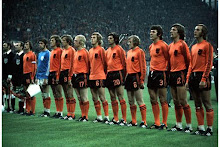Aston Villa and yer actual Keith Telly Topping's beloved (though still unsellable) Newcastle United extended their unbeaten starts to the season to five games after an entertaining draw at Villa Park on Saturday. Both teams remain unbeaten this season but that is one of the few positives which Alex McLeish can have taken from a match in which his team were outplayed for long periods. Gabriel Agbonlahor's third goal of the season was one of the other plus points, but it was cancelled out by a Leon Best equaliser and The Magpies came close to scoring a winner several times. Villa had to endure a testing start as the visitors — tidy and ambitious – exerted early pressure. One methodical move resulted in Yohan Cabaye finding space for a shot from the edge of the area in the sixth minute, but his swerving effort flew just wide. A Ryan Taylor free-kick from the edge of the area in the twelfth minute failed to trouble Shay Given but moments later the goalkeeper had to backpedal frantically tip a shot-cum-cross from Gabriel Obertan over the bar. The home side took the lead from their first purposeful attack. Barry Bannan, operating primarily on the right of midfield, switched to the left and curled a cross towards the penalty spot. Fabricio Coloccini blocked Agbonlahor's first-time shot but the ball then fell kindly for the striker, who rolled it gratefully into the net from six yards past Tim Krul.  Despite Newcastle's domination, Darren Bent should have put Villa two up in the twenty sixth minute but steered the ball wide from close range after being set up by Stiliyan Petrov. As the first half ebbed away Villa began to retreat ever more. Given had to make a good save from Steven Taylor. Then Jonás Gutiérrez snatched badly at a shot from fifteen yards out after being teed-up by Danny Simpson. Just before the break a close-range attempt on the turn by Demba Ba was deflected over. Villa made a better start to the second period. Agbonlahor could have extended their lead in the forty seventh minute but fired fractionally wide from fifteen yards. But Newcastle quickly re-established control and their equaliser arrived in the fifty seventh minute. The impressive Cheik Tioté delivered an inswinging cross from the left that eluded Richard Dunne. Given blocked Best's close-range header with his feet but the striker slammed the rebound into the roof of the net. Newcastle continued to dominate but a mistake by Steven Taylor in the seventieth minute presented Bent with a chance to score against he run of play. However, his lob over the onrushing goalkeeper lacked power and Taylor was able to recover and clear. Cabaye nearly gave the visitors the victory with a swirling twenty-yard volley in the dying minutes but Given produced a superb save. The Frenchman had another chance moments later from a cross by substitute Sylvain Marveaux but he stabbed wide from an acute angle.
Despite Newcastle's domination, Darren Bent should have put Villa two up in the twenty sixth minute but steered the ball wide from close range after being set up by Stiliyan Petrov. As the first half ebbed away Villa began to retreat ever more. Given had to make a good save from Steven Taylor. Then Jonás Gutiérrez snatched badly at a shot from fifteen yards out after being teed-up by Danny Simpson. Just before the break a close-range attempt on the turn by Demba Ba was deflected over. Villa made a better start to the second period. Agbonlahor could have extended their lead in the forty seventh minute but fired fractionally wide from fifteen yards. But Newcastle quickly re-established control and their equaliser arrived in the fifty seventh minute. The impressive Cheik Tioté delivered an inswinging cross from the left that eluded Richard Dunne. Given blocked Best's close-range header with his feet but the striker slammed the rebound into the roof of the net. Newcastle continued to dominate but a mistake by Steven Taylor in the seventieth minute presented Bent with a chance to score against he run of play. However, his lob over the onrushing goalkeeper lacked power and Taylor was able to recover and clear. Cabaye nearly gave the visitors the victory with a swirling twenty-yard volley in the dying minutes but Given produced a superb save. The Frenchman had another chance moments later from a cross by substitute Sylvain Marveaux but he stabbed wide from an acute angle.
Brazil has begun its countdown for the 2014 World Cup, one thousand days before it hosts the football tournament. President Dilma Rousseff launched the event at a stadium in Belo Horizonte alongside the footballing legend Pele, who is Brazil's World Cup ambassador. Rousseff promised the new stadiums and other infrastructure required would be ready on time, despite major difficulties and delays. The tournament will kick off on 12 June 2014. Before then, Brazil must build or upgrade twelve stadiums. Many of them are behind schedule and over budget. At some, construction workers have been on strike - including the Maracana in Rio de Janeiro where the final will be played and the Mineirao ground in Belo Horizonte where President Rousseff started the countdown. Building work on the new Itaquerao stadium in Sao Paulo - which is hoping to host the opening game - only began in May. Brazil must also deliver huge infrastructure developments such as roads and airport terminals so that fans can move between the twelve venues spread across the huge country. Much of that transport infrastructure is anyway badly needed to meet the demands of Brazil's booming economy and expanding middle class. 'Investing in infrastructure is a way of saying no to the international crisis affecting countries in the Eurozone and the US,' Rousseff said. The 2014 World Cup will be the first in South America since Argentina hosted the tournament in 1978, and the first in Brazil since 1950. Correspondents say that most Brazilians are confident they will make a success of hosting the tournament - after all, they have already won the World Cup five times. Rio de Janeiro is also due to host the Olympic Games in 2016. The two tournaments are being seen as statements of Brazil's emergence as a rising global economic power of the Twenty First Century, much as the 2008 Beijing Olympics served as a calling card for China's confident new role on the global stage.
Building work on the new Itaquerao stadium in Sao Paulo - which is hoping to host the opening game - only began in May. Brazil must also deliver huge infrastructure developments such as roads and airport terminals so that fans can move between the twelve venues spread across the huge country. Much of that transport infrastructure is anyway badly needed to meet the demands of Brazil's booming economy and expanding middle class. 'Investing in infrastructure is a way of saying no to the international crisis affecting countries in the Eurozone and the US,' Rousseff said. The 2014 World Cup will be the first in South America since Argentina hosted the tournament in 1978, and the first in Brazil since 1950. Correspondents say that most Brazilians are confident they will make a success of hosting the tournament - after all, they have already won the World Cup five times. Rio de Janeiro is also due to host the Olympic Games in 2016. The two tournaments are being seen as statements of Brazil's emergence as a rising global economic power of the Twenty First Century, much as the 2008 Beijing Olympics served as a calling card for China's confident new role on the global stage.
 Despite Newcastle's domination, Darren Bent should have put Villa two up in the twenty sixth minute but steered the ball wide from close range after being set up by Stiliyan Petrov. As the first half ebbed away Villa began to retreat ever more. Given had to make a good save from Steven Taylor. Then Jonás Gutiérrez snatched badly at a shot from fifteen yards out after being teed-up by Danny Simpson. Just before the break a close-range attempt on the turn by Demba Ba was deflected over. Villa made a better start to the second period. Agbonlahor could have extended their lead in the forty seventh minute but fired fractionally wide from fifteen yards. But Newcastle quickly re-established control and their equaliser arrived in the fifty seventh minute. The impressive Cheik Tioté delivered an inswinging cross from the left that eluded Richard Dunne. Given blocked Best's close-range header with his feet but the striker slammed the rebound into the roof of the net. Newcastle continued to dominate but a mistake by Steven Taylor in the seventieth minute presented Bent with a chance to score against he run of play. However, his lob over the onrushing goalkeeper lacked power and Taylor was able to recover and clear. Cabaye nearly gave the visitors the victory with a swirling twenty-yard volley in the dying minutes but Given produced a superb save. The Frenchman had another chance moments later from a cross by substitute Sylvain Marveaux but he stabbed wide from an acute angle.
Despite Newcastle's domination, Darren Bent should have put Villa two up in the twenty sixth minute but steered the ball wide from close range after being set up by Stiliyan Petrov. As the first half ebbed away Villa began to retreat ever more. Given had to make a good save from Steven Taylor. Then Jonás Gutiérrez snatched badly at a shot from fifteen yards out after being teed-up by Danny Simpson. Just before the break a close-range attempt on the turn by Demba Ba was deflected over. Villa made a better start to the second period. Agbonlahor could have extended their lead in the forty seventh minute but fired fractionally wide from fifteen yards. But Newcastle quickly re-established control and their equaliser arrived in the fifty seventh minute. The impressive Cheik Tioté delivered an inswinging cross from the left that eluded Richard Dunne. Given blocked Best's close-range header with his feet but the striker slammed the rebound into the roof of the net. Newcastle continued to dominate but a mistake by Steven Taylor in the seventieth minute presented Bent with a chance to score against he run of play. However, his lob over the onrushing goalkeeper lacked power and Taylor was able to recover and clear. Cabaye nearly gave the visitors the victory with a swirling twenty-yard volley in the dying minutes but Given produced a superb save. The Frenchman had another chance moments later from a cross by substitute Sylvain Marveaux but he stabbed wide from an acute angle.Brazil has begun its countdown for the 2014 World Cup, one thousand days before it hosts the football tournament. President Dilma Rousseff launched the event at a stadium in Belo Horizonte alongside the footballing legend Pele, who is Brazil's World Cup ambassador. Rousseff promised the new stadiums and other infrastructure required would be ready on time, despite major difficulties and delays. The tournament will kick off on 12 June 2014. Before then, Brazil must build or upgrade twelve stadiums. Many of them are behind schedule and over budget. At some, construction workers have been on strike - including the Maracana in Rio de Janeiro where the final will be played and the Mineirao ground in Belo Horizonte where President Rousseff started the countdown.
 Building work on the new Itaquerao stadium in Sao Paulo - which is hoping to host the opening game - only began in May. Brazil must also deliver huge infrastructure developments such as roads and airport terminals so that fans can move between the twelve venues spread across the huge country. Much of that transport infrastructure is anyway badly needed to meet the demands of Brazil's booming economy and expanding middle class. 'Investing in infrastructure is a way of saying no to the international crisis affecting countries in the Eurozone and the US,' Rousseff said. The 2014 World Cup will be the first in South America since Argentina hosted the tournament in 1978, and the first in Brazil since 1950. Correspondents say that most Brazilians are confident they will make a success of hosting the tournament - after all, they have already won the World Cup five times. Rio de Janeiro is also due to host the Olympic Games in 2016. The two tournaments are being seen as statements of Brazil's emergence as a rising global economic power of the Twenty First Century, much as the 2008 Beijing Olympics served as a calling card for China's confident new role on the global stage.
Building work on the new Itaquerao stadium in Sao Paulo - which is hoping to host the opening game - only began in May. Brazil must also deliver huge infrastructure developments such as roads and airport terminals so that fans can move between the twelve venues spread across the huge country. Much of that transport infrastructure is anyway badly needed to meet the demands of Brazil's booming economy and expanding middle class. 'Investing in infrastructure is a way of saying no to the international crisis affecting countries in the Eurozone and the US,' Rousseff said. The 2014 World Cup will be the first in South America since Argentina hosted the tournament in 1978, and the first in Brazil since 1950. Correspondents say that most Brazilians are confident they will make a success of hosting the tournament - after all, they have already won the World Cup five times. Rio de Janeiro is also due to host the Olympic Games in 2016. The two tournaments are being seen as statements of Brazil's emergence as a rising global economic power of the Twenty First Century, much as the 2008 Beijing Olympics served as a calling card for China's confident new role on the global stage.


